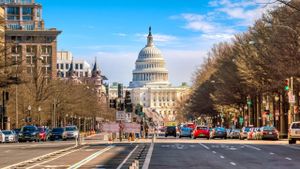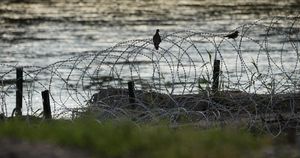Brazil is currently reeling from shocking allegations against former President Jair Bolsonaro. A recently unsealed police report claims Bolsonaro actively participated in a coup plot to prevent his electoral defeat from taking effect following the 2022 presidential election, where he lost to Luiz Incio Lula da Silva.
The sprawling report, spanning over 800 pages, details how Bolsonaro allegedly coordinated with military personnel and other officials to orchestrate this coup. Brazilian Federal Police allege he was not only aware of but directly involved in the conspiracy, demonstrating what appears to be a blatant attempt to cling to power. These serious accusations arise just as Brazil is grappling with the aftermath of political tumult following the election.
Authorities assert the former president was involved with elite military forces conspiring to assassinate Lula, his vice president, and even a Supreme Court judge. This plan, dubbed “Operation Green Dagger,” reportedly aimed to eliminate key figures opposing Bolsonaro, circumventing the democratic process altogether. The timing is particularly sinister, as it was allegedly concocted shortly before Lula’s inauguration on January 1, 2023.
Official documents submitted to Brazil’s Supreme Court outline the scope of this insurrection. Specifically, the report states, “The then-President of the Republic, Jair Bolsonaro, actively participated in the creation of the coup plan, being directly involved in the drafting of documents and strategies to remain in power, even after the electoral defeat.” Such damning language from law enforcement has galvanized both public opinion and political discourse throughout the nation.
This situation escalated when earlier this week, authorities arrested four military officials and one police officer who were allegedly coordinating the assassination part of this plot. These arrests followed extensive investigative efforts, which revealed the scale of Bolsonaro's involvement and the networks operating behind the scenes to destabilize Brazil’s democracy.
Despite his insistence on innocence, claiming he is being politically persecuted, the mounting evidence paints a starkly different picture. Bolsonaro’s aggressive rhetoric and public support for his actions continue to rally his base, creating division as condemnation from opposition parties swells. “The term ‘coup d’état’ has never been part of my vocabulary,” he stated at one of his press conferences, dismissing the allegations as unfounded.
Interestingly, investigators have matched several audio recordings to this conspiracy, where high-ranking military officers are heard pressuring Bolsonaro to engage fully with their plans. This multimedia evidence complicates Bolsonaro's defense, putting him at the center of serious allegations questioning the integrity of Brazil's democratic processes.
Legal consequences loom large over the former president, with calls for prosecution issued for Bolsonaro and at least 36 others linked to the coup. Attorney General Paulo Gonet now faces the formidable task of evaluating whether these charges will proceed. If so, it would not only challenge Bolsonaro's political future but also possibly signify the beginning of extensive legal accountability for actions deemed anti-democratic.
The societal repercussions are considerable as well. Public sentiment is polarized, with many citizens demanding pieces of accountability for actions perceived as dangerous to democracy. Brazil, as one of the largest democracies globally, stands at a precarious juncture as it attempts to navigate this turmoil.
Many observers see this as reflective of broader trends across the world, where similar threats to democracy arise from autocratically inclined leaders attempting to commandeer power beyond their electoral mandate. Brazil finds itself at the forefront of this struggle, presenting not just a cautionary tale for other nations but also potentially pivotal lessons on the resilience of democratic institutions.
With tensions high and the political climate shifting, it remains uncertain how the government and the Brazilian people will together forge the path forward. The investigation's results will likely play a monumental role, either fortifying Brazil’s democratic principles or allowing for the rise of more authoritarian approaches, as illustrated by the stark influences of Jair Bolsonaro's leadership.
Bolsonaro's destiny now hinges on the legal battles to come, as he navigates through explosive allegations paired with public scrutiny. With the judiciary's next steps holding significant weight, Brazil braces for potential ramifications—not just for the former president but for the nation’s political fabric as well. The unsealed report has unveiled more than just allegations; it has triggered a national conversation about what threatens democratic norms and who will be held accountable.



